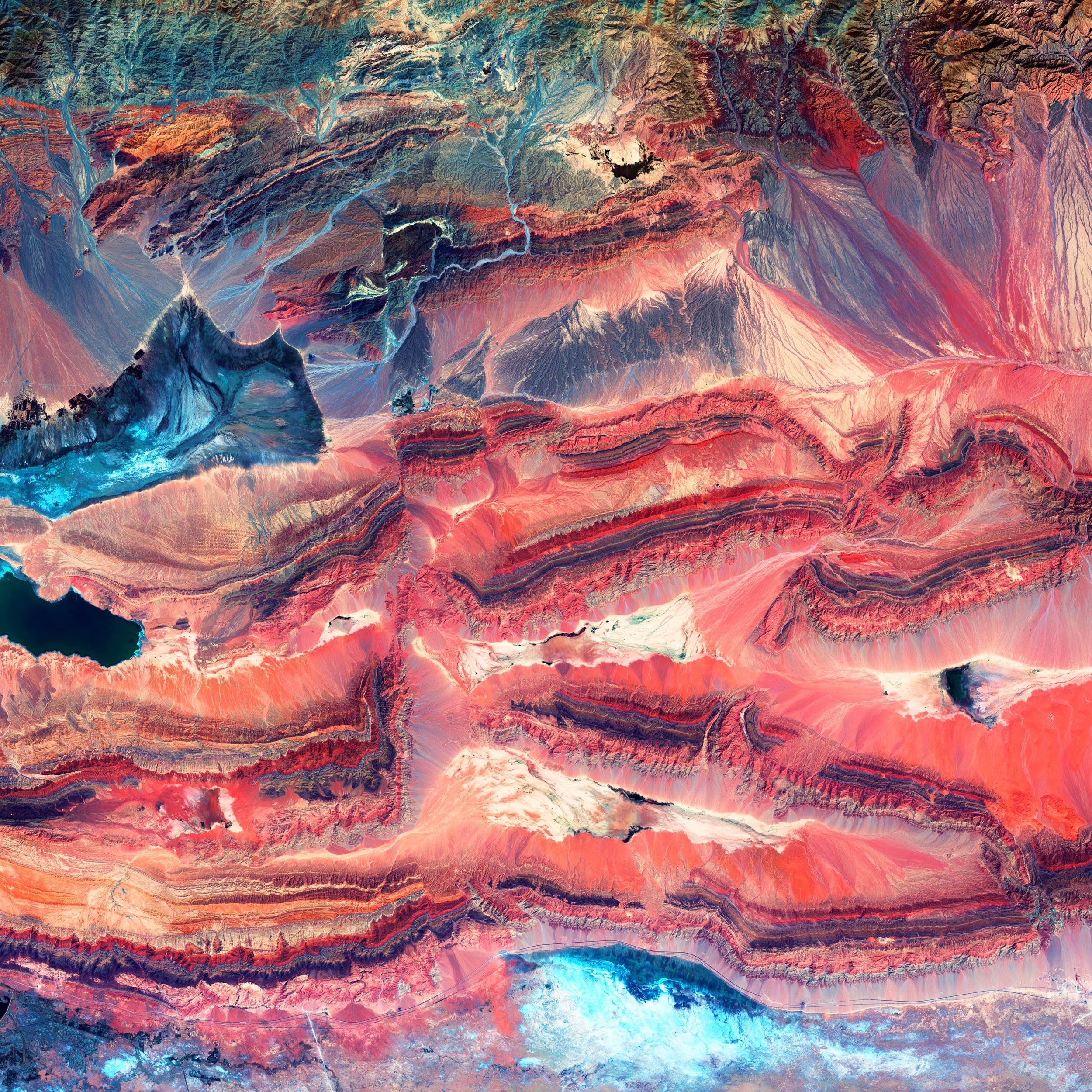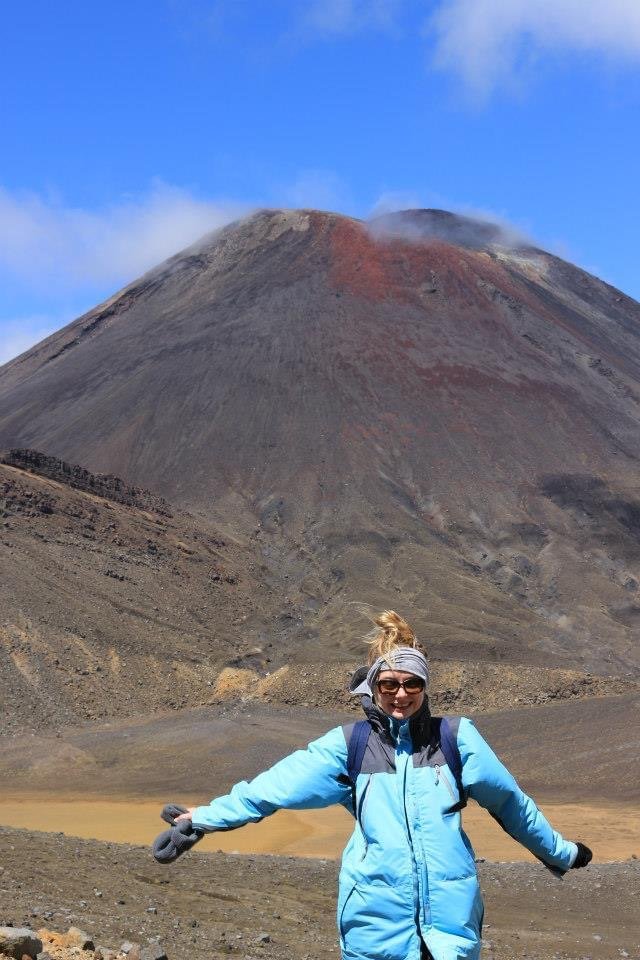
Dr Melanie Finch
Lecturer - Monash University
Bachelor of Science (Honours, Psychology), Bachelor of Science (Honours, Geoscience) & Doctorate of Philosophy (Geoscience)
November 2021
Dr Melanie Finch is a Lecturer and a geologist at Monash University. This means she teaches university students geology and she also does science research to figure out the way our planet works.
Melanie is an expert on shear zones – ‘conveyor belts’ that move rocks around the earth and can make mountains and cause earthquakes. Her particular speciality is using computer models to understand rock deformation to show how the beautiful structures in shear zones develop. A current focus is how water moves through deforming rocks and transports critical metals, which Australia needs to make the transition to wind and solar energy that is crucial to climate change solutions.
Q: Why did you choose this career pathway?
What are the positives and negatives?
A: I chose it because I love learning about the way Earth works and solving science puzzles. The benefits are that I get to follow my own ideas and work on whatever interests me the most. There is a huge amount of freedom and that is really fulfilling.
The Tongariro Alpine Crossing is a 20 km hike across volcanoes in the North Island, New Zealand. The volcano Melanie is standing in front of here is Mount Ngauruhoe, which is an active stratovolcano that last erupted in 1977.
The negatives are that to do research you need to get grants and getting grants is really hard sometimes. It is also hard to get academic jobs in general, so there is pressure to publish a lot of papers and be very successful. Other pathways I could have chosen would not allow me to research my own crazy ideas every day. That is the huge appeal of being an academic.
Q: What are the best parts about your job?
What are the hardest parts?
A: The best part is getting to think up research ideas and then test them. I’m basically like a detective because I put clues together to solve mysteries. That’s really fun.
The hardest part is supervising PhD students because every student is different and needs different things. It can be hard to find the supervision style that will inspire an individual student to reach their full potential.
Lab work at the Australian Synchrotron. Melanie and her team were using the synchrotron to do some ultra-fast mapping of rock slivers so that they could understand how the different minerals relate to each other.
Q: What are the major challenges in your field?
A: A major challenge is finding critical minerals to power the green energy revolution. Critical minerals are the building blocks of wind turbines, solar panels and electric cars. If we can find lots of these resources and extract them in a sustainable and responsible way, we can perhaps make the switch to green energy happen faster.
We know that governments and businesses are responsive to making big changes when it makes good economic sense. If we create a ready supply of these critical minerals it might be the push needed for Australia to adopt green energy quicker and reach zero emissions a lot sooner, which is what we, and our planet, desperately need.
Q: How well did your degree prepare you for your career path?
A: I am an expert in my field, and the building of that expertise started in my undergraduate degree. My bachelor degree gave me two fundamental things: (1) a basic understanding of how the entire Earth works, and (2) a love for Earth science. In honours and in my PhD I learnt a lot about my specific area of expertise and that learning continues today.
Something that surprises people is how transferable skills from other degrees are into an Earth science academic career. I originally studied psychology where I learnt a lot of statistics but I often use that knowledge in my current work. I have heard of others who majored in maths or computer science or art who also use their skills in their Earth science career.
Q: What advice would you give to students in your study area trying to decide on a career path?
A: The most important message I want to tell Earth Science PhD students is that there is a dazzling array of jobs that are available to you after you finish your PhD. A vanishingly small number of people with PhDs go on to be academics. Most people with PhDs go into different research organisations (synchrotron, CSIRO, government jobs) or into different industries (GIS, hydrogeology, minerals industry) and they have successful, fulfilling and happy careers.
The problem is that when PhD students are doing their PhDs they spend a lot of time with their supervisors and other academics, so they get a sense that this is the normal path and if they don’t continue on this path, they have failed. They could not be any more wrong about that. Your aim is to find a career that will make you happy and fulfilled, and there are many options to achieve that.
Sometimes geologists need to get to rocks that are far from the nearest roads and require multi-day hikes. This is Melanie leading a horse in the NW Himalaya, where she worked for a few weeks. Each day she loaded up horses or donkeys with her bags and camping gear and the animals would carry it to the next campsite while Melanie studied the rocks.
Side hustle shout out!
I am the President of an organisation called Women in Earth and Environmental Sciences Australasia (WOMEESA). We aim to create a supportive network of women Earth and Environmental Scientists in academia, industry and government. We run workshops, seminars and other events to bring women together and provide opportunities for our members to grow their networks and to help each other. We also try to help accelerate change in gender equity by raising awareness of issues that hamper women's careers. Membership is free, you can join at https://www.womeesa.net/join.
Melanie on a boat in Milford Sound, New Zealand, to see the place where the Australian and Pacific tectonic plates meet.




